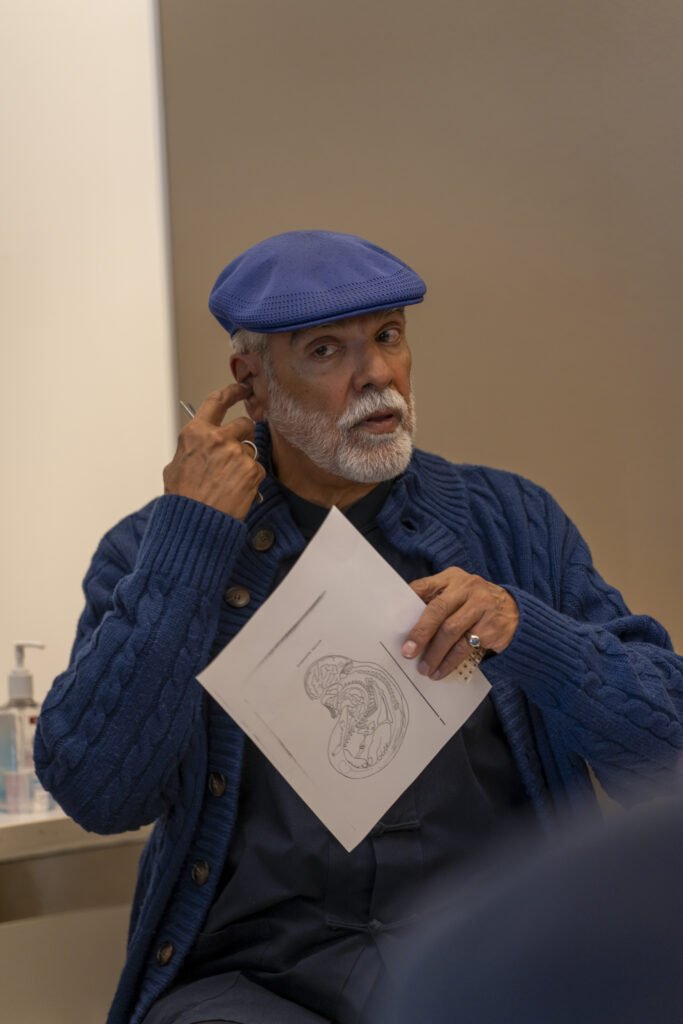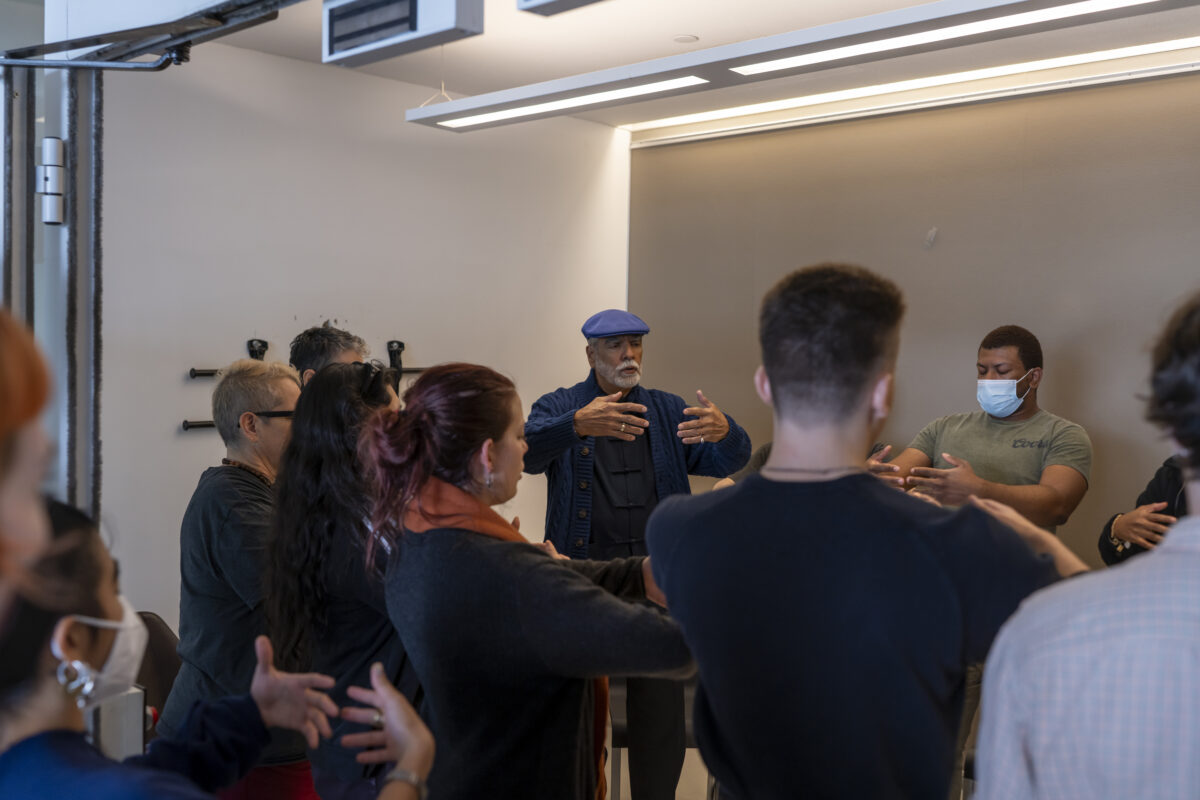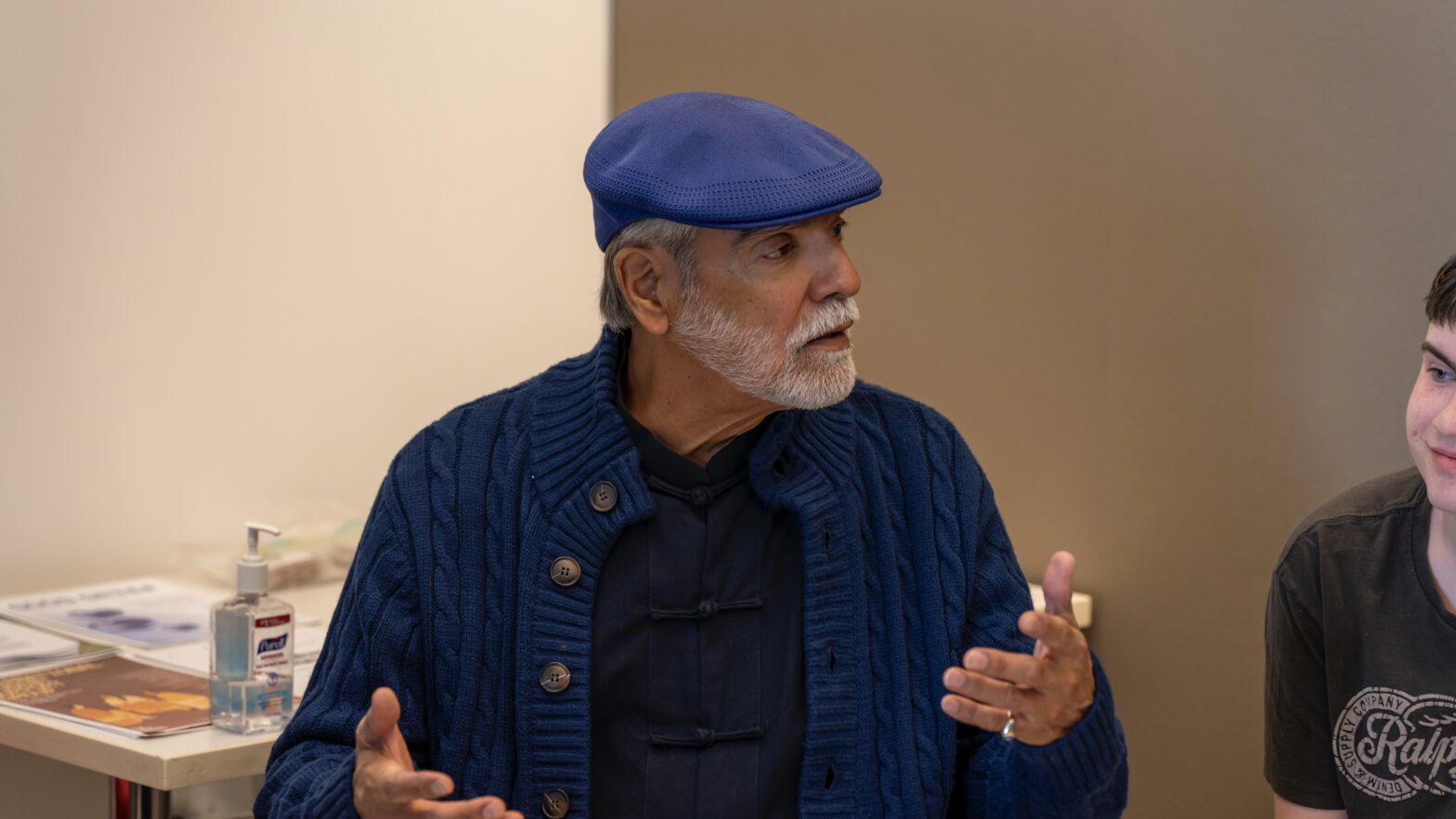When thinking of acupuncture, there may not be any obvious correlation with activism, but there is a strong history of individuals, or former hospital occupations, that speak differently. Last Friday, Oct. 11, at The New School’s Social Justice Hub, students and faculty gathered to hear about the role of acupuncture as not only a means of activism but as a method to reclaim healing practices. Located inside the University Center, the event was hosted by the Vera List Center and the Schools of Public Engagement.
The evening began as licensed acupuncturist Walter Bosque began with an explanation of acupuncture’s basic principles. He articulated this holistic practice as bridging a connection between the mind, body, and spirit. The ear serves as a map of pressure points which correlate to different parts of the body — the liver, lung, and kidney. By stimulating these points, practitioners aim to provide relaxation and foster long-lasting healing.

Tracing back to his first experiences with acupuncture as a vessel for activism, Bosque explained his involvement with Young Lords, an activist group advocating for minority rights of employment, education, and basic medical care. The innovative technique was first used during the 1970s, a time of deep contention and conflict for minorities. Other advocacy groups like the Black Panther Party and the Health Revolutionary Unity Movement joined members of Young Lords, challenging racial injustice in hospitals during the rampant heroin epidemic. Occupying Lincoln Hospital in the South Bronx, the coalition of activists created the People’s Program, otherwise known as the Lincoln Detox Program.
Within the streets of the South Bronx, countless communities were left helpless as their neighbors became victims of heroin addiction. In the People’s Program, acupuncture was utilized as an aid in the painful process of detoxing. Using a technique known as “the five point protocol” — an experimental treatment that Bosque and others brought to the program — doctors and nurses targeted pressure points and made use of meditation to ease withdrawals, allowing patients to feel their own sense of euphoria without any dependence on a drug.
The People’s Program created an environment where addicts were served and supported by their fellow neighbors, united in their fight against the mounting cost of oppression and the neglect shown to them by public health infrastructure which prioritized care based on race and economic status. From 1974 to 1978, the People’s Program treated more than 1,000 patients, providing them with care, education, and lasting community ties.

Many students were inspired by Bosque’s emphasis on the intersection of activism and care. “I think that it’s important to hear from older activists and to hear how they approach activism in their life and how to approach it nowadays. I think that the study of the body and our time with it is really important, and can be overlooked,” Ara Davis said, a third-year studying fine arts and gender studies.
Jonah Devlin, a fourth-year studying contemporary music and religion, felt rewarded by the opportunity to learn about this subject. “I think talking about the intersection of organizing and not only physical, but spiritual care is something that I’m passionate about. I’m glad that we had this venue to talk about it,” he said.
According to Bosque, the advantages of acupuncture for detoxification have only increased. With technology and social media so dominant in our current world, it has never been easier to be disconnected from one’s body. Bosque articulated that the practice of acupuncture follows many of the values of tai chi — emphasizing the idea of simply being. Bosque urged students to understand the importance of finding mindfulness and simplicity in their fast-paced lives in New York City.
In alignment with Bosque’s concerns, the Student Health Services (SHS) is currently hosting acupuncture demonstrations that are available for students to promote the alleviation of stress and insomnia, as well as the induction of calming effects. “In our harm reduction work, one of the things that we heard about was how effective regular acupuncture is for cravings,” Tracy Robin said, associate provost for SHS.
Simply having SHS available as an open space for public use has allowed its own form of refuge for students. “We have students come in and just sit quietly for maybe 20 minutes. We have people who just go into a state of total relaxation,” Robin said.
Located on 80 Fifth Ave, the open space is available on select Mondays and Wednesdays during the months of October through December. On the impact the space has on students, Robin said, “I think it’s sort of a break where you get to really just be in the moment. I’m sure [it] can teach students mindfulness.”








Leave a Reply